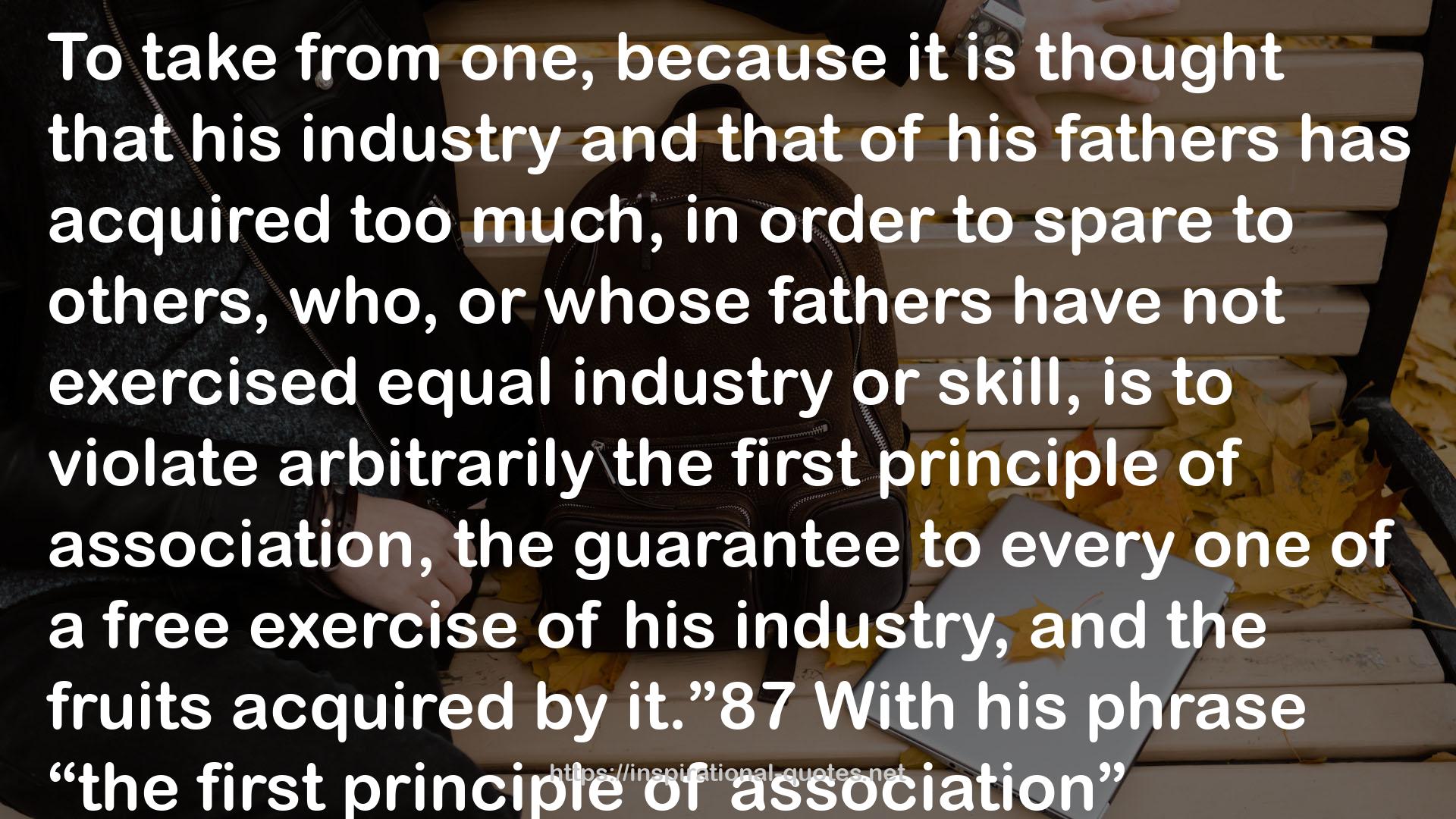" To take from one, because it is thought that his industry and that of his fathers has acquired too much, in order to spare to others, who, or whose fathers have not exercised equal industry or skill, is to violate arbitrarily the first principle of association, the guarantee to every one of a free exercise of his industry, and the fruits acquired by it.”87 With his phrase “the first principle of association” Jefferson, who had a bust of Locke at Monticello, was harkening back to Locke’s reasoning from the state of nature: This is why we come together in political association in the first place. All men are created equal as rational pursuers of happiness as they define it, and are equally entitled to the enjoyment of the fruits of their striving. Lincoln thought that economic inequality could and should be a spur to industry: “That some should be rich, shows that others may become rich, and hence is just encouragement to industry and enterprise.” And in the next sentence of his March 21, 1864, letter to the Workingmen’s Association he implicitly cautioned against what today is known as redistribution: “Let not him who is houseless pull down the house of another; but let him labor diligently and build one for himself, thus by example assuring that his own shall be safe from violence when built.”88 "
― George F. Will , The Conservative Sensibility
